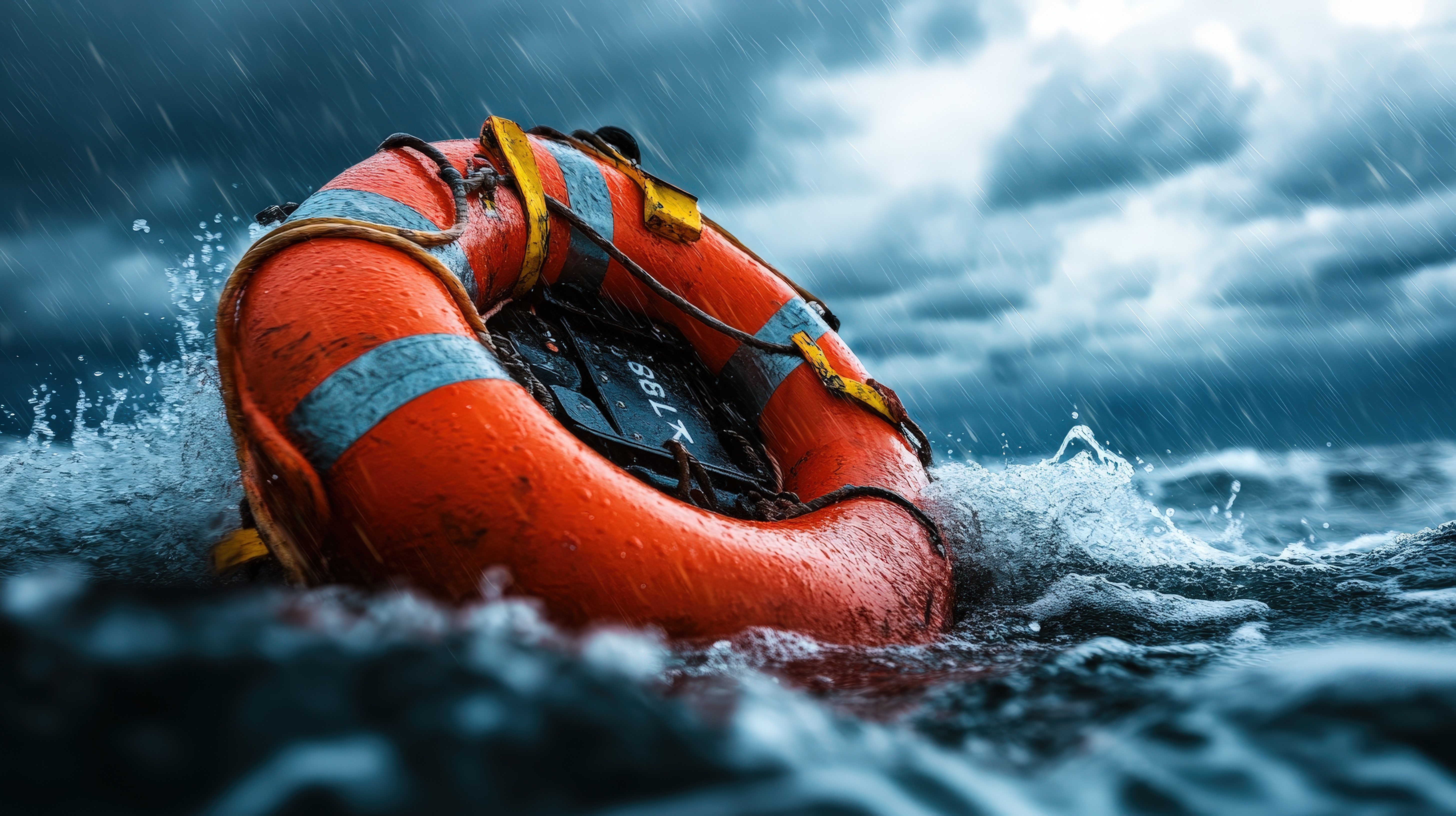The UK Club crew health team were recently asked to source support for seafarers who had sadly witnessed the unexpected death of a fellow crew member. Months later, despite initial counselling, the crew was still experiencing flashbacks and anxiety. They were suffering from Post-Traumatic Stress Disorder (PTSD).
What is PTSD?
Traumatic events are common in any society and individuals can be traumatised by any event perceived as life threatening or diminishing their sense of personal safety. Individuals that have suffered or witnessed major traumatic events may experience acute psychological distress, feel frightened, sad, anxious or disconnected following the traumatic experience. For most people these symptoms gradually subside, however, when symptoms last longer and get worse, PTSD may be developing.
Traumatic events involve:
- Witnessing a serious workplace accident i.e. chemical explosion, fire onboard, collisions, ship groundings
- Witnessing the death or a serious injury of a co-worker onboard
- Being the victim of serious injury or repeated harassment or bullying onboard
- Direct exposure to a traumatic event
- Witnessing, in person, a traumatic event as it occurs to another person
- Learning that a traumatic event occurred to a close family member or friend
- Experiencing repeated or extreme exposure to traumatic events
Traumatic events include:
- Being a victim of a natural or human caused disaster
- Physical assault or attack such as robbery, mugging, sexual abuse, hostage situations, terrorist attack, piracy, torture or war prisoner
Not all people who have experienced a traumatic event will go on to develop PTSD. While a person is most likely to develop symptoms in the hours or days following a traumatic event, it can sometimes take weeks, months, or even years before they appear. Sometimes symptoms appear seemingly out of the blue, others are triggered by something that reminds them of the event such as a noise, an image, certain words or a smell.
Signs and symptoms of PTSD
- Difficulty concentrating, being easily startled, behaving recklessly or in self-destructive ways
- Re-living the traumatic event through distressing, unwanted memories, vivid nightmares and/or flashbacks. This can also include feeling very upset or having intense physical reactions such as heart palpitations or breathing difficulties when reminded of the traumatic event
- Avoidance of anything that reminds you of the trauma, being unable to remember aspects of the experience
- Persistent negative emotional state (e.g. fear, horror, anger, guilt or shame)
- Markedly diminished interest or participation in significant activities
- Feelings of detachment or estrangement from others and a sense of limited future
Recovery tips
Tip 1: Challenge your sense of helplessness
- Recognise that you have experienced a traumatic event and remind yourself that your responses are normal
- Don’t bottle up your feelings – seek a trusting friend or colleague to talk to
- Stay resourceful
- Utilise active problem solving skills i.e. prioritising tasks, determining course of action, staying organised
- Recovery from PTSD is a gradual ongoing process, and overcoming trauma does not happen overnight. The first step is overcoming your sense of helplessness by reminding yourself that you have strengths and coping skills that can get you through tough times. One of the best ways to reclaim your sense of power is by helping others. Research has shown that journaling our thoughts can help us process the negative experience, thus, decreasing the flashbacks, nightmares or intrusive thoughts that often accompany PTSD
Tip 2: Get active
- When you’re suffering from PTSD, exercise can do more than release endorphins and improve your mood and outlook. Exercise can mobilise your nervous system to get “unstuck” from a “freeze stress response state”
Tip 3: Engage with others for support
- PTSD can make you feel disconnected from others. You may be tempted to withdraw from social activities, but it’s important to stay connected to life and the people who care about you. You don’t have to talk about the trauma, but the caring support and companionship of others is vital to your recovery
- Reach out to someone you can connect with, who will listen when you want to talk without judging, criticising, or continually getting distracted. Find supportive connections and spend time with people – have a morning coffee, play a card game, share funny stories
Tip 4: Adopt a healthy lifestyle
- Take time to relax. Relaxation techniques such as meditation, deep breathing, massage or yoga can activate the body’s relaxation response and ease symptoms of PTSD
- Avoid alcohol and drugs. When you’re struggling with difficult emotions and traumatic memories, you may be tempted to self-medicate with alcohol or drugs. Substance use worsens many symptoms of PTSD, interferes with treatment, and can add to problems in your relationships
- Eat a healthy diet. Start your day right with breakfast, and keep your energy up and your mind clear with balanced, nutritious meals throughout the day. Where possible, limit processed food, fried food, refined starches and sugars which can exacerbate mood swings and cause fluctuations in your energy.
- Get enough sleep. Sleep deprivation can trigger anger, irritability, and moodiness.
Tip 5: Challenge triggers
- Someone suffering from PTSD can easily become overwhelmed, fearful and anxious when faced with triggers that remind them of the traumatic experience. These triggers can be both internal, such as feeling vulnerable, angry, lonely and sad, or recalling memories of the trauma, or external, such as anniversaries, smells, noises and certain people. Instead of avoiding these triggers, learning to find healthy ways of coping with these triggers can assist your healing process.
How to support someone with PTSD
- Acknowledge and be sensitive to the person who has experienced a traumatic event
- Be compassionate, show kindness with a sincere smile, make eye contact, etc
- Validate them by reassuring them that their reactions are normal
- Put your personal feelings aside, don’t add your personal disaster to the other person or overwhelm them emotionally
- Avoid a judgmental attitude or generalisations about ethnic or religious differences; focus on understanding, compassion and positive actions
- Be aware of your limitations. If you find yourself being drained emotionally, or falling into depression or anxiety, let someone else provide support
- Help them with their practical and basic needs
Companies can assist by:
- Keeping communication channels open
- Provide information and resources available to seafarers such as brochures or handouts regarding symptoms and signs of PTSD and tips for coping with PTSD
- Shift seafarers back to work by assigning less demanding tasks or re-allocation of some tasks
- Apply flexible or reduced working hours
- Implement changes in the workspace
- Provide stress management workshops
- Conduct debriefing sessions after exposure to potential traumatic events
Support
Sailors’ Society Crisis Response network
Provides a rapid response trauma care and counselling service for survivors of piracy attacks, natural disasters and crises at sea. You can email the emergency team at crisis@sailors-society.org or call one of their regional contacts:
Africa: Rev J.D. van Schalkwyk Tel: 0027 8330 18022
Asia: Gavin Lim Tel: 0065 9222 4600
Europe: Marc Schippers Tel: 0032495 185691
India: Manoj Joy Tel: 0091 9884 140950
Philippines: Iris Picardal Tel: 0063 9175 782 118
SeafarerHelp
SeafarerHelp is a free multi-lingual helpline for seafarers and their families run by the International Seafarers’ Welfare and Assistance Network (ISWAN). Available 24 hours a day, 365 days a year. www.seafarerhelp.org
Tel: 0044 20 7323 2737
Email: help@seafarerhelp.org
The Mission to Seafarers
Working in over 200 ports in 50 countries and available 365 days a year, The Mission to Seafarers provides help and support to all seafarers. Their network of chaplains, staff and volunteers can help with any problem – whether it’s emotional, practical or spiritual. All chaplains are trained in managing situations arising from critical incidents and our regional directors are also trained in suicide prevention.
Seafarers | The Mission to Seafarers
Europe: Ije Ajibade ije.ajibade@missiontoseafarers.org
Africa: Cedric Rautenbach cedric@mtssa.co.za
Australia: Garry Dodd garry@mtsnewcastle.au.org
East Asia: Stephen Miller Stephen.miller@mtsmail.org
Oceania: Lance Lukin lance.lukin67@gmail.com
Apostleship of the Sea
Apostleship of the Sea (Stella Maris) provides practical and pastoral support and advice to all seafarers. They have chaplains able to assist in 328 ports in 59 countries. Apostleship of the Sea (Stella Maris) can:
- Provide transport to a seafarers centre or town
- Provide phone cards or mobile Wi-Fi onboard ship
- Visit seafarers and fishers onboard their ship
- Provide support and advice or just a listening ear
- Visit seafarers in hospital and provide support prior to repatriation
- Provide bibles, scripture booklet and rosary beads
- Arrange for Mass to be celebrated on board your ship or take you to a church to attend Mass
www.apostleshipofthesea.org.uk
This advice was compiled with the help of our psychological and psychometric screening partners I.M.E.Q.You can watch their mental health video library at: www.imeq-magazine.com.




